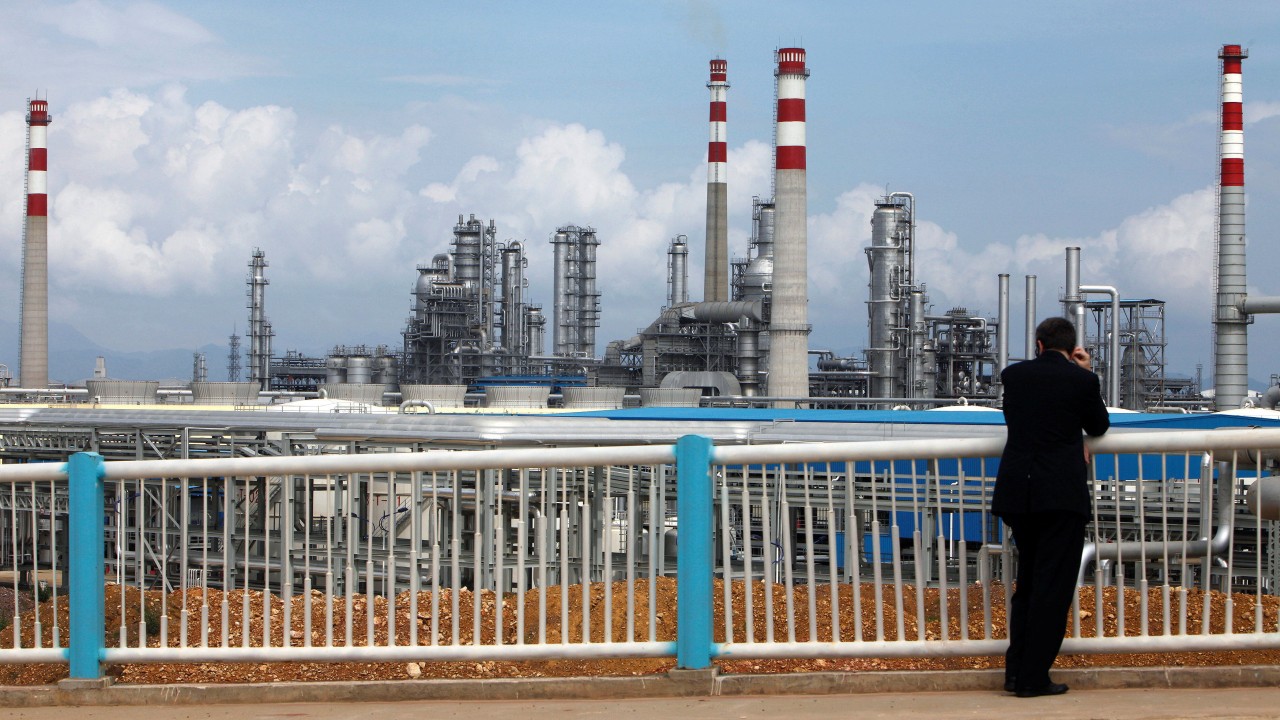
China’s decades-long boom in oil processing could falter this year in a blow to global demand and the aspirations of Opec producers seeking to return supply to the market.
Oil refining in the world’s top crude importer is expected to be flat or fall for the first time in data that extends back to 2004 – excluding a Covid-hit 2022 – according to most market watchers surveyed by Bloomberg. The IEA this week also reduced its processing forecast, but still sees a gain.
A prolonged property crisis has weighed on China’s economy this year, while the steady uptake of new-energy vehicles and trucks powered by gas are flashing bearish signs for future oil demand. The nation’s refiners are extending maintenance schedules to account for lower consumption.
China refined a record 14.76 million barrels a day last year – known as crude throughput – as demand rebounded after the pandemic, but the recovery is showing signs of faltering. The International Energy Agency said in a report Wednesday that the nation’s refinery runs slumped to Covid-era levels in April.
Of the six analysts and industry consultants surveyed by Bloomberg, three forecast a year-on-year decline in processing, while two predicted refining would remain flat. One projected a gain.
Jianan Sun, a London-based analyst with Energy Aspects, is in the camp that sees a decrease, along with industry consultants Mysteel OilChem and GL Consulting. Sun only recently flipped his estimate from an increase of 100,000 barrels a day this year to a loss of the same magnitude.
The prospect of lower Chinese demand presents Opec with a dilemma when it comes to raising output this year, especially given supply from outside the group is swelling. The alliance has said it can adjust or reverse production changes if needed, and some analysts think a boost is unlikely.
Benchmark oil prices have trended lower since early April on concerns about robust supply and soft demand, particularly from China.
Industry consultants FGE and JLC are predicting China’s refining will remain flat in 2024. Rystad Energy sees a gain, but has lowered its estimate to 150,000 barrels a day from 250,000 barrels a day made at the start of the year.
The start of mega-refineries such as Shandong Yulong Petrochemical Co., the expansion of China Petroleum & Chemical Corp.’s Zhenhai refinery and Cnooc’s Daxie plant will help to underpin an increase in processing, according to Lin Ye, a senior analyst for oil trading & downstream at Rystad.
China’s independent refiners – dubbed “teapot” refiners – have struggled with lower margins for making fuels, despite access to cheaper barrels from nations such as Iran and Russia. That has led to more maintenance, while OilChem predicts diesel yields are on track to fall to a historic low this month.
Refiners will ramp up slowly from maintenance, but they are expected to have at least 1 million barrels a day of spare processing capacity that they will not use due to poor demand, according to Mia Geng, an analyst with FGE. The consultant had predicted growth of 200,000 barrels a day earlier this year.

